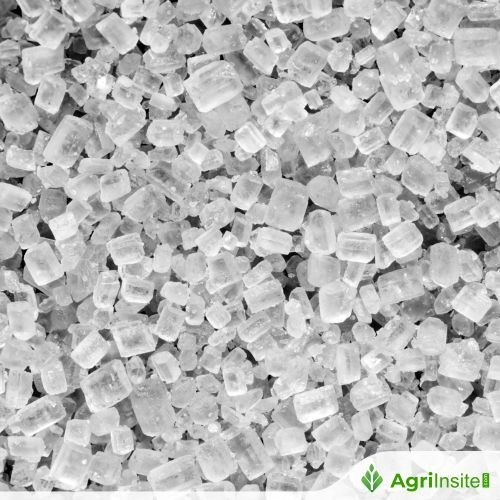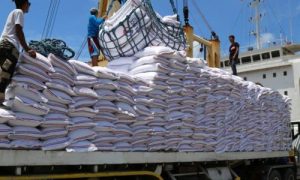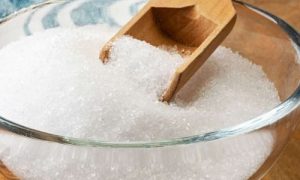SRA bans molasses imports, lowers sugar output estimate

The Sugar Regulatory Administration (SRA) of the Philippines has imposed a moratorium on molasses imports until year-end to review domestic production and usage, following a 28% import rise and ample local stocks. The measure aims to ensure ethanol and alcohol producers prioritize local molasses, address pest-related sugar output declines, and protect farmers’ interests.
The Sugar Regulatory Administration has issued a moratorium on molasses importation pending the review of policies that govern production and supply balance, which will be beneficial to both planters and users.
SRA said in a statement on Thursday, Molasses Order No. 1 for the current crop year, issued last September 30, highlighted the fact that molasses imports in the previous crop year increased by 28 percent to 853,285 metric tons (MT).
This occurred despite an increase in domestic production of 20.5 percent to 1.176 million MT or an increase of more than 200,000 MT in the previous crop year.
The sugar crop year in the Philippines starts in September and ends in August of the following year.
Molasses is a thick, dark liquid that is a byproduct of sugar refining and serves as a raw material for producing alcohol and ethanol.
SRA said that as of the end of August 2025, the molasses millsite stock balance reached 303,961 MT.
Discrepancy
SRA administrator Pablo Luis Azcona said that they would like to take a closer look at the “discrepancy” in the volume of locally produced molasses used versus alcohol production.
The agency called for a moratorium on molasses import after a noticeable decrease in the withdrawal of local molasses from mills, on top of a decrease in the price of domestic molasses, currently averaging at P12,000 per MT or 30 percent lower than in the previous crop year’s P18,000 per MT.
SRA stated that the bulk of molasses domestic production is utilized by ethanol producers, which enables oil companies to comply with the biofuel law that mandates a blend of locally produced ethanol in gasoline products.
“We also need to see why the local molasses purchased from the farmers still remain unwithdrawn and unused. Hence, there is no need to import,” Azcona emphasized.
“I think it is imperative that we know where these ethanol and alcohol producers are sourcing their molasses from. For the ethanol producers, we hope that their feedstock is really local as the biofuel law states. For the alcohol producers, they consume the local produce first, which is actually of higher quality, prior to resorting to lower quality imported molasses,” he said.
The SRA assured farmers and millers that a performance-based policy would be crafted to allow a calibrated, fair, and objective process for the importation of the commodity.
The SRA chief said the moratorium will last until the end of this year, but it can be extended or lifted depending on the molasses stock balance.
However, Azcona said the SRA will no longer process “clearances for release of imported molasses,” but added that the moratorium will not cover applications filed before the ban or those imports already in transit.
Stakeholders’ woes
Meanwhile, local sugar industry stakeholders agreed with the SRA’s projections that local sugar production will decrease as a result of pest infestation in Visayas.
SRA estimated an 8.1 percent output drop for crop year 2025 to 2026 to 1.92 million MT from the previous crop year’s 2.09 million MT. The country’s demand for sugar is currently at 2.3 million MT.
SRA said the output decline was the expected effect of the red-striped soft scale insect (RSSI) infestation in Visayas.
RSSI is a sugarcane pest that can reduce sugar content by almost 50 percent. Its infestations are commonly found on field perimeters, especially near roadsides, and can cause yellowing leaves, stunted growth, and shortened internodes.
The agency said that such symptoms appear as early as two to three months after planting with infestations peaking from the fourth to tenth month of cane growth.
Sugar groups noted that there may be a need for the government to permit the importation of sugar supplies.
However, they noted that such move should be “judiciously managed” in terms of the volume and timing of arrival, so that local farmers will not be placed in a disadvantage against cheaper imported sugar.
Enrique Rojas, National Federation of Sugarcane Planters president, said that RSSI infestation damaged sugarcane crops in Negros Island which traditionally produces 65 percent of the country’s sugar.
“As we have observed in the past years, our production has not been enough to fill the demand. This makes it necessary to import but any importation should be judiciously managed in terms of the volume and timing of arrival, so that our farmers will not be placed in a disadvantage against these cheaper, subsidized imported sugar,” Rojas explained.
“Hopefully, after all the RSSI-affected canes are harvested in the early months of the season, our prospective crops can recover and we can produce enough sugar to fill our domestic demand, so that there will be no need for sugar importation in the coming crop years,” he said.
Manuel Lamata, United Sugar Producers Federation president, also agreed with the SRA’s projections.
“I would agree with those estimates. We never imagined the damage caused by RSSI was that extensive. Hopefully, we can recover this coming crop year,” he said in a separate message.
Based on the Department of Agriculture’s monitoring of select public markets in the National Capital Region, prevailing retail prices as of Tuesday (September 30) were still at P80 per kg for refined sugar, P75 per kg for washed sugar and P70 per kg for brown sugar.
The SRA millsite monitoring showed the composite price of raw sugar as of August 24, the end of milling operations for the previous crop year, was at P2,350 per 50 kg bag.
To Read more about Sugar Industry continue reading Agriinsite.com
Source : Business Insights
















